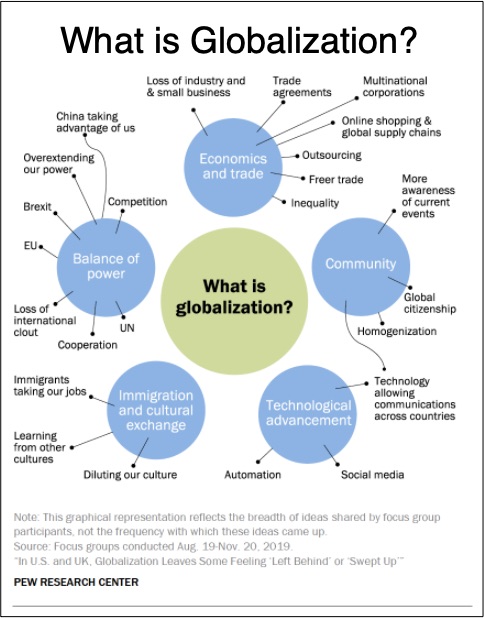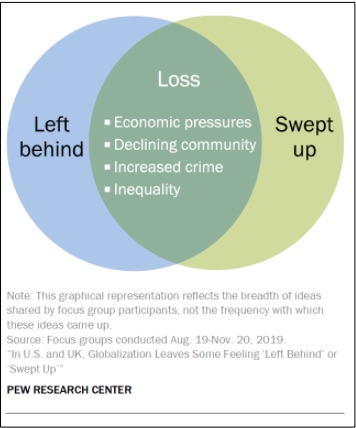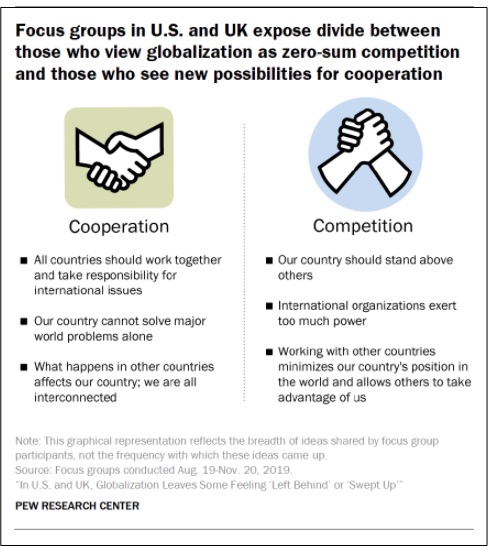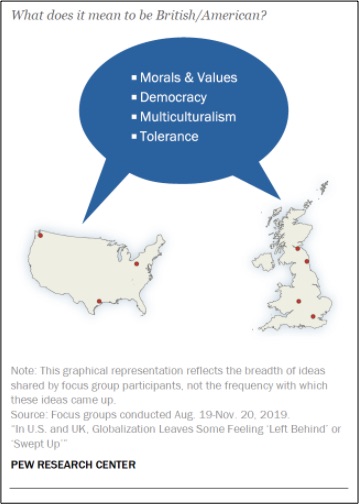During 2019, when a pandemic was not high on most worry lists, Pew Research wanted to know what we thought about globalization. It turns out that while we were thinking about the same word, we didn’t even share a common definition.
Let’s take a look.
Globalization
Definitions
Asked about globalization, people have lots of examples. According to Pew, it might be call-in centers located virtually anywhere. They could be in the Philippines, India, or Las Vegas. Or, globalization could just be a T-shirt label that says Vietnam and some Chicken Pad Thai.
A more precise definition of globalization, though, was tough to express because people’s thoughts were all over the place. For some it was economics and trade. Others cited communication or immigration.
This was the summary:
Opinions
People’s attitudes also varied considerably.
Those who felt excluded or swept up saw fewer job opportunities. In Pittsburgh and Newcastle, people saw irrelevant coal mines and steel mills. They worried about disintegrating neighborhoods and social ties. They saw their local pubs being replaced by Starbucks and McDonald’s.
You can see below, that a sense of loss connected it all:
Others though perceived the opportunity to extend bonds and connections. Working with people beyond their borders, they could solve climate change and deal with health concerns. They could share ideas and diverse products.
Pew summarized each perspective:
Our Bottom Line: Tradeoffs
Pew’s researchers believed that national identity and globalization were intertwined. Whether looking at three cities in the U.S. or four in the U.K., researchers saw that people were wrestling with their morals and values, democracy, multiculturalism, and tolerance:
As economists, that leaves us at our usual destination. It takes us to the tradeoffs that characterize every decision. So, whatever globalization means to each of us, we still share a common denominator.
My sources and more: Today, my one source was Pew’s globalization paper. Also, I recommend comparing today’s post to the U.S. study that we presented during September.










